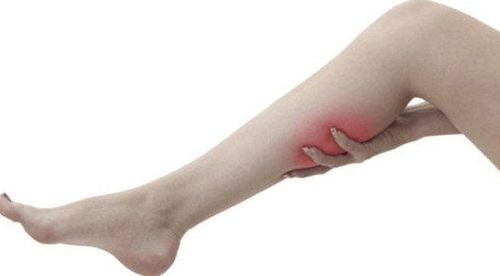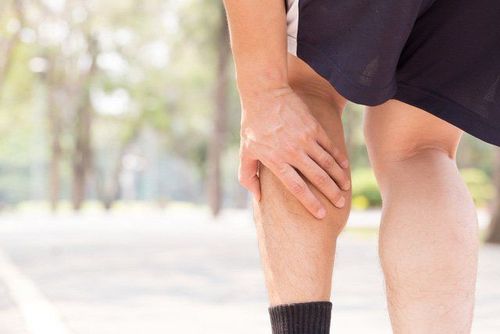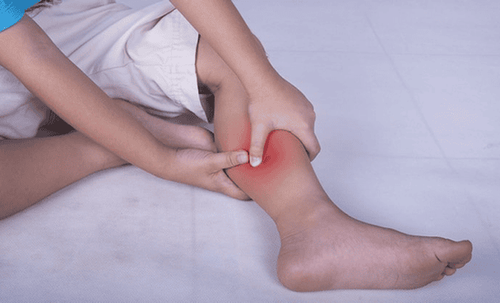This is an automatically translated article.
Muscle cramps are an unpleasant symptom that can happen at any time. Cramps are most likely to occur while you are active, working, or training muscles. Your muscles require more minerals when they work, and muscle cramps occur when you are deficient in minerals. To prevent cramps you need to get enough of the necessary minerals with foods that reduce cramps.
1. Causes of muscle cramps
Muscle cramps are an unpleasant symptom, characterized by painful muscle contractions. This usually comes on suddenly and lasts only a few seconds to a few minutes.
Almost everyone has had at least one muscle cramp, but not always due to a single cause. There are many causes of muscle cramps, common causes include:
Intense exercise Neuromuscular abnormalities Electrolyte imbalance Drug use Dehydration .... Some studies Research shows that supplementing with certain minerals like potassium, sodium, calcium and magnesium can help fight muscle cramps. In addition, deficiencies in vitamins such as vitamin D and some B vitamins can increase the risk of muscle cramps. Therefore, when you eat foods that are nutrient-dense, rich in vitamins and minerals, it can help reduce muscle cramps and prevent it from happening.
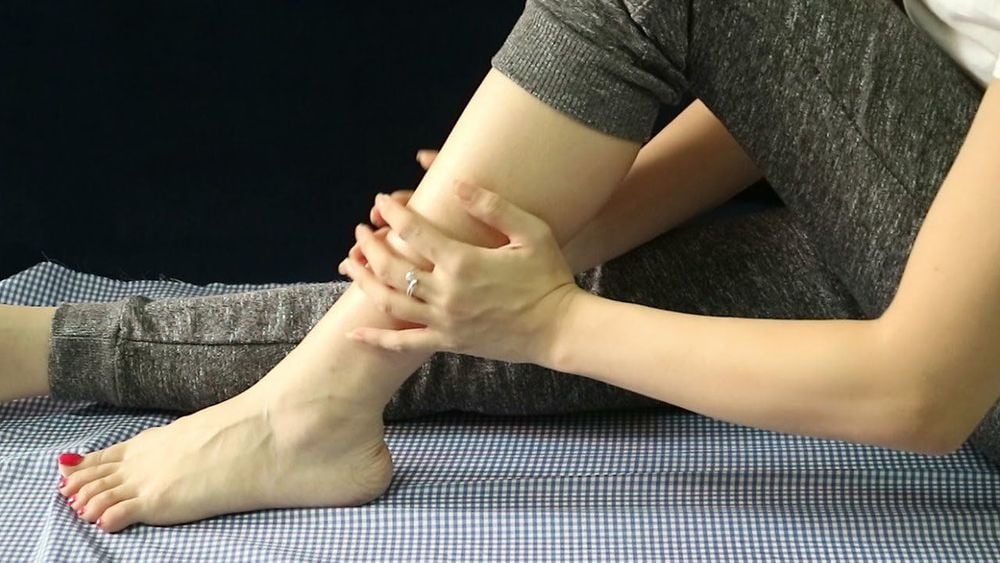
Chuột rút cơ bắp gây ảnh hưởng đến chất lượng cuộc sống của người bệnh
2. Minerals that need to be supplemented to prevent muscle cramps
Sodium-rich foods: your body needs sodium to maintain normal fluid balance and regulate blood pressure. Sodium also works together with other electrolytes for muscle contraction and nervous system function. If you're low on sodium, your body may signal you by making you crave salty foods. You can eat salted chips or any other salty food. After sweating during prolonged endurance training, you lose a lot of sodium as well as water, so it is necessary to replace both water and electrolytes. Foods rich in potassium: Adults need 4,700 mg of potassium per day. Potassium is important for the nervous system and proper muscle function. This is why your muscles can cramp if you lack potassium. Most foods contain potassium, so your body will get enough of this mineral if you consume potassium-rich foods daily. Whole foods like fruits, vegetables, dairy, and fish are rich sources of potassium. Bananas, melons, citrus fruits, and avocados are fruits that are high in potassium. Potatoes, sweet potatoes, and squash are root vegetables that are high in potassium. Calcium-rich foods: Calcium plays an important role in muscle contraction, including your heart muscle and blood vessels. This mineral also plays a role in the generation of nerve impulses. If you have a calcium deficiency, you may experience muscle cramps or muscle weakness. The average adult needs about 1,000 mg of calcium per day. You can get 244 mg of calcium in a 200ml glass of skim milk. The most calcium-rich vegetables are dark green vegetables. In addition, almonds, figs, yogurt and cheese are also good sources of calcium.
Magnesium-rich foods: Magnesium is a mineral that stabilizes adenosine triphosphate, which is the source of energy for muscle contractions. Feeling weak, cramping, and twitching are all signs of magnesium deficiency. You can get magnesium by eating beans and nuts, whole grains, bananas, and dark green vegetables.
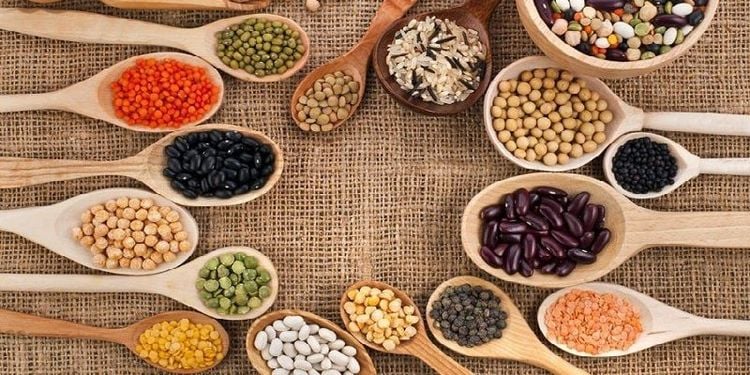
Ngũ cốc nguyên hạt được lựa chọn trong thực đơn của người bị chuột rút
3. 12 foods that can help relieve muscle cramps
3.1. Avocado is a fruit packed with nutrients that can help prevent muscle cramps. Avocados are rich in potassium and magnesium, two minerals that act as electrolytes in the body and play a role in muscle health.
Electrolytes are electrically charged substances that your body needs to perform important functions, including muscle contraction. When the levels of electrolytes in the body are out of balance, symptoms such as muscle cramps can appear. So, if you have frequent cramps, you should consume more electrolyte-rich foods like avocado.
3.2. Watermelon One of the causes of muscle cramps is dehydration. Working whole muscles requires adequate hydration, so a lack of water can interfere with muscle cells' ability to contract, which can cause or worsen cramps.
Watermelon is a fruit with an exceptionally high water content. In fact, watermelon is almost 92% water, making it a great choice for a hydrating snack. In addition, watermelon is also a good source of magnesium and potassium for the body.
3.3. Coconut water Coconut water is the right choice for athletes who want to rehydrate and replenish electrolytes naturally. It's an excellent source of electrolytes, providing calcium, potassium, sodium, magnesium and phosphorus - all minerals that can help relieve muscle cramps.
One study found that when 10 male athletes rehydrated with a beverage with electrolytes similar to coconut water after an intense workout, they experienced less muscle cramps due to electrical stimulation, compared to when they drink water regularly.
3.4. Sweet potatoes Sweet potatoes are one of the healthiest vegetables you can eat. Because in sweet potatoes, there is a combination of vitamins, minerals and plant compounds found in both the intestines and the skin of the sweet potato.
Sweet potatoes contain a lot of potassium, calcium and magnesium. These are minerals that are important for muscle function. About 200 grams of sweet potatoes provide more than 20% of the recommended amount of potassium and nearly 13% of the recommended amount of magnesium.
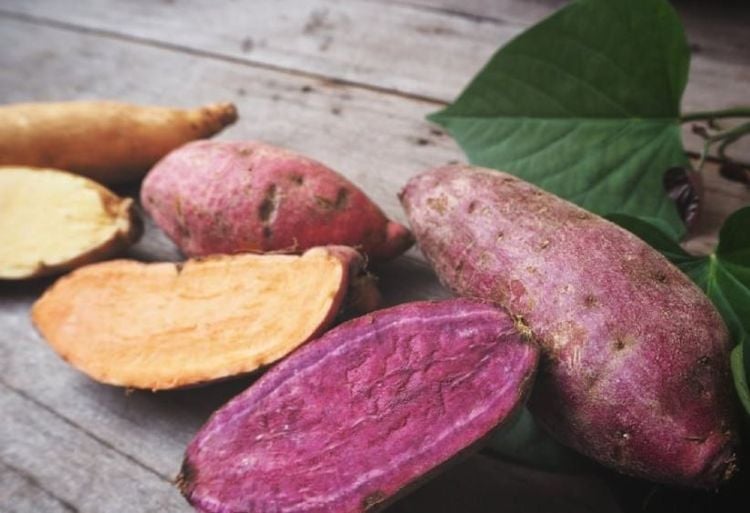
Khoai lang là loại thực phẩm chứa nhiều dưỡng chất tốt cho sức khỏe con người
3.5. Yogurt Yogurt is a healthy dairy product that is packed with nutrients, especially potassium, phosphorus and calcium.
Muscles need calcium to function properly, which is why a lack of calcium in the blood can lead to muscle-related complications, including muscle cramps and irregular heartbeat.
In addition, yogurt also provides protein, which is necessary for the growth and repair of muscle tissue. So eating yogurt after a strenuous workout can help replenish certain nutrients that can prevent exercise-induced muscle cramps, as well as enhance muscle recovery.
3.6. Bone broth Bone broth, or bone broth, is made by boiling animal bones for a long time, usually more than 8 hours, to create a concentrated broth. Ingredients such as apple cider vinegar, herbs, and spices are often added to increase nutritional value and flavor.
Bone water can help relieve muscle cramps for a number of reasons:
Bone water is a liquid that, taken by mouth, can help you stay hydrated, which can reduce muscle cramps. Bone broth is a good source of magnesium, calcium, and sodium that can help prevent cramps. Research shows that lowering bone water pH by increasing the acidity from apple cider vinegar and cooking for more than 8 hours increases calcium and magnesium levels significantly.
3.7. Papaya Papaya is a delicious tropical fruit that is exceptionally high in potassium and magnesium. In fact, a single 310g papaya provides about 15% of the recommended amount of potassium, and 19% of the recommended amount of magnesium per person for a day. A study of 230 women found that those experienced muscle cramps. consume less potassium than people without the condition. Therefore, eating more potassium-rich foods like papaya can help reduce the risk of muscle cramps.
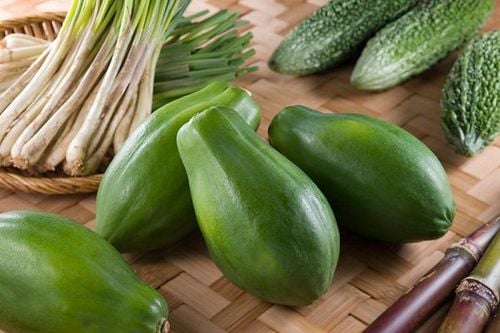
Trái đu đủ chứa lượng lớn kali và magie cần thiết cho cơ thể
About 144g of cooked turnip greens contains more than 20% of the recommended amount of potassium and magnesium. They are also rich in calcium, phosphorus and B vitamins, which are important for muscle function. In addition, turnip greens contain nitrates, which are compounds that help improve blood vessel function, ensuring blood flow to your muscles. Optimizing blood flow can help reduce muscle cramps.
3.9. Fermented foods Fermented foods, such as pickles and kimchi, are often high in sodium and other nutrients that can help relieve muscle cramps. Interestingly, some studies have shown that the use of pickle juice can help inhibit electrically induced muscle cramps in athletes.
Pickles, along with other fermented foods including kimchi that are rich in electrolytes like sodium, can be a good choice for people who suffer from frequent muscle cramps.
3.10. Salmon Salmon is an incredibly rich source of protein, healthy anti-inflammatory fats, and other nutrients that can help prevent muscle cramps, including B vitamins, potassium, magnesium and phosphorus.
Salmon is also high in iron, a mineral essential for healthy blood cell production, muscle tissue oxygenation and blood flow, which is important for preventing muscle cramps.
In addition to salmon is also a good source of vitamin D, 100g of wild salmon contains 85555mcg of vitamin D. Having enough vitamin D in the blood is essential for muscle function and a lack of this nutrition can lead to health problems. muscular symptoms such as muscle pain, spasms, and weakness.
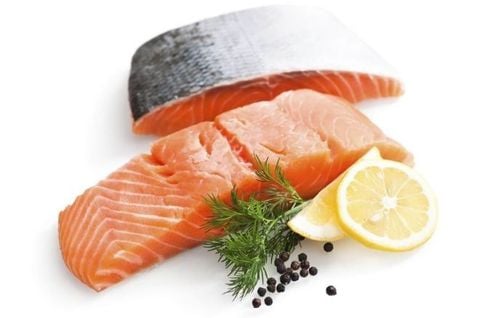
Người bị chuột rút có thể bổ sung cá hồi vào thực đơn hàng ngày
For example, combining berries, spinach, almond butter, and yogurt in an easy-to-drink smoothie can help provide the vitamins and minerals your muscles need to function at peak levels. Optimal.
Additionally, nutrient-rich smoothies can prevent muscle cramps by ensuring your body is properly hydrated and fueled.
3.12. Sardines Sardines may be small, but they are a priority when it comes to nutrition. These small fish are especially rich in nutrients that can help prevent and relieve muscle cramps such as calcium, iron, phosphorus, potassium, sodium, magnesium and vitamin D.
Sardines are also high in selenium, a Minerals play an essential role in muscle function. Low selenium levels can lead to muscle weakness or other muscle problems. It's important to include enough selenium-rich foods like sardines in your diet.
Muscle cramps are a painful symptom that many people experience. If you regularly experience muscle cramps, try adding a few of the above-mentioned cramp-reducing foods to prevent them naturally. If your symptoms still don't improve, you need to see your doctor to find out what's causing the condition and get proper treatment.
Vinmec International General Hospital with a system of modern facilities, medical equipment and a team of experts and doctors with many years of experience in medical examination and treatment, patients can rest assured to visit. examination and treatment at the Hospital.
To register for examination and treatment at Vinmec International General Hospital, you can contact Vinmec Health System nationwide, or register online HERE.
References: healthline.com, livestrong.com
SEE MORE
Frequent cramps, is it worrying? Causes of cramps during pregnancy How to treat and prevent cramps during pregnancy




